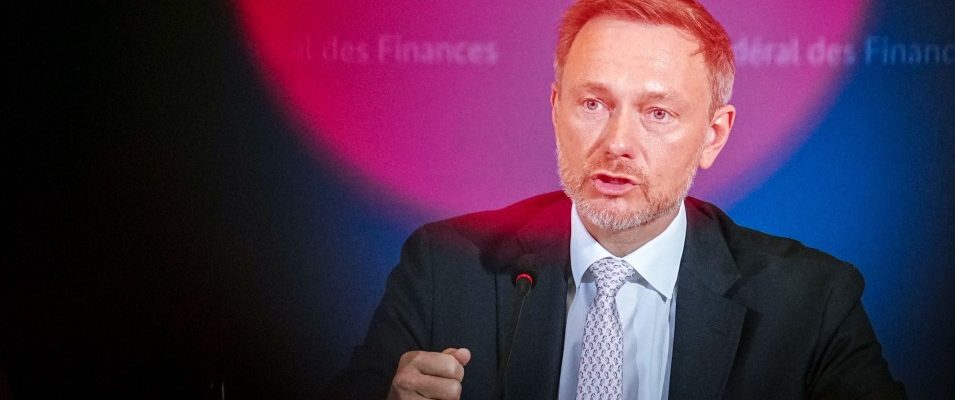Christian Lindner was not sparing with big words when he announced the establishment of a Federal Financial Criminal Investigation Office exactly a year ago. According to the minister, financial crime is “not a trivial offense” and the Federal Republic should not remain the “paradise for money laundering” that some critics see it as. He, Lindner, is therefore planning a “big hit” and a real “paradigm change” to get the problems under control.
The corresponding draft law is now on the table – and if you believe the experts from the citizens’ movement Finanzwende, then it fails to deliver everything that the finance minister had promised. “Lindner is failing to deliver,” said Konrad Duffy, the association’s representative, who sees itself as a non-partisan counterweight to the financial lobby. Neither will a powerful new federal authority be created, nor will the numerous detailed problems in the fight against financial crime be solved.
The background to the reform plans is the massive criticism that the international anti-money laundering body FATF, among others, had leveled against Germany for years. For example, the responsible German central office, the so-called FIU, had to admit a year ago that around 100,000 suspicious money laundering reports had been found in-house that had never been processed manually without anyone noticing. Another problem is that the fight against money laundering outside the banking sector is spread across 300 supervisory bodies throughout Germany. Information is always lost here.
The Ministry of Finance (BMF) had already posted a draft law on the Internet in July, but it could no longer be found shortly afterwards. The new version now seems much more toothless. “The first version of the law already had many shortcomings,” said Michael Findeisen, supporter of the citizens’ movement and former head of the money laundering and payment transactions department at the BMF. At least good approaches were still visible. “They are completely missing in the new draft, the law has been completely gutted.”
Experts are calling for potentially illegal assets to be confiscated
Specifically, the experts accuse Lindner of dealing with money laundering in his reform, but completely ignoring other areas of financial crime, such as tax crimes. “The new authority would not have prevented scandals like Cum-Ex, Cum-Cum or Wirecard,” said the experts. The minister also renounces “the sharpest sword in combating money laundering”, namely the confiscation of suspicious assets by administrative order. This option was included in the first draft, but is now completely missing. “If you really want to hurt criminals, you have to hit them with illegally acquired assets,” said Findeisen. In such a case, potential money launderers would have to prove that the funds in their accounts are not the product of criminal activity.
Further points of criticism are that the minister wants to leave “the patchwork of 300 supervisory bodies nationwide” untouched. There should be no real bundling of competencies in the future higher federal authority to combat financial crime (BBF). Instead, the BBF will be set up as an additional office alongside existing authorities such as the Federal Criminal Police Office (BKA) and should only have a coordinating function. In addition, the BKA remains the first point of contact for international authorities such as Europol and Interpol. The new Federal Financial Criminal Police Office will only find out about crimes in a roundabout way. This means that competency tussles and loss of information are inevitable from the start.
If the Federal Cabinet approves the draft law in its current form, the Bundestag will be asked to revise the reform so that it “does justice to the minister’s grandiose announcements,” said Duffy. “Setting up a new agency with such a weak law would be a waste of time and money.”

